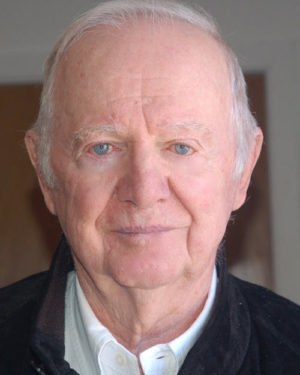 We are undergoing difficult times related to our lack of cohesion as a nation that take me back to my service on the Army staff in the Pentagon. I was responsible for the issues related to race, drugs and alcohol, sexual harassment and all other discipline issues. Back in the early eighties, the nation was still suffering from the Vietnam malaise that made the task of creating an effective volunteer force even more problematic. While there were many views offered, the consensus in how to make the Army a more cohesive force, centered on generating team spirit, confidence and caring and mutual respect through realistic training.
We are undergoing difficult times related to our lack of cohesion as a nation that take me back to my service on the Army staff in the Pentagon. I was responsible for the issues related to race, drugs and alcohol, sexual harassment and all other discipline issues. Back in the early eighties, the nation was still suffering from the Vietnam malaise that made the task of creating an effective volunteer force even more problematic. While there were many views offered, the consensus in how to make the Army a more cohesive force, centered on generating team spirit, confidence and caring and mutual respect through realistic training.
Fostering the circle
All in all, the most challenging aspect of this task was to recognize that this new volunteer force was to be comprised of the same young mostly ”blue collar” Americans, bringing with them many of the societal ills that beset us at the time. We needed to convince them that they now belonged to an institution with a long, proud history and that they were now carrying on in that tradition. It was imperative, after the much- maligned years of Vietnam, to create a sense of belonging. As Colin Powell reflected recently before his death, a young black American from the Bronx had to catch that spirit of belonging and pride. It was clear the Army had to nurture this inclusive feeling of being part of something bigger, and where individual performance guided the acknowledgement of excellence and advancement.
In all our recent conflicts, our soldiers gave testimony to this philosophy and thrived within a “circle of affection” of our country.
Lessons from the military experience
Society is no exception, and ideally, this feeling of belonging, “circle of affection” should follow all of us from birth through family, into the educational process, the community, the workforce and simply being a citizen of the Nation. Much of societal ills can be traced to stages in one’s life when and where one was excluded from the circle of affection.
We can now see with careful observation and experience what critical life stages demand more emotional support and guidance. For example, our recognition of ‘Pre-K’ as a critical stage in which to continue the mothers’ nurturing into the oncoming school environment uninterrupted. In our new family norms where both parents need to work or single parents or grandparents are pressed to provide adequate attention and support, there may not be enough nurturance and guidance to help children thrive. The prevailing socio-economic realities make effective community designed pre-K programs an absolute necessity for the majority of Americans raising a family.
Taos Behavioral Health respects
Taos Behavioral Health operates by lending emotional support as needed. A critical component of our service is to enhance stability in relationships between therapists and clients—between participants and other group members. Throughout the COVID process we have created stable pods of related students who met regularly together and reinforced each other’s healing. Unfortunately, the great inequities in income and taxation in our country have created a more and more disadvantaged citizens who struggle to make ends meet, to provide comfort and nurturance to each other.
It is now clear just how disruptive and divisive our political life has become and how political antagonism puts a significant segment of the American population outside of a circle of inclusion. Our national societal cohesion is in shambles and the hopes of President Biden bringing us together are challenged at present.
Taos Behavioral Health meets the needs of young and old and is staffed with professionals intricately familiar with local cultural practices who can adapt readily to what is a dynamic challenge. Taos Behavioral Health is a key player that sustains the feeling of solidarity and togetherness of our community.
TBH has the largest staff of behavioral health licensed and credentialed professionals in northern New Mexico. We can be reached at 575-758-4297, www/taosbehavioralhealth.org or at 105 Bertha in Taos for scheduled appointments.
George is a retired infantry officer with a wide range of troop experience. On the Army staff in the Pentagon , he served as Deputy Director for Human Resource Development. The task was to improve the cohesion of the Army and mitigate all issues related race, drug and alcohol and integration of women. George has been the member of the TBH board for the last two years and is deeply concerned about our divisive social climate.

